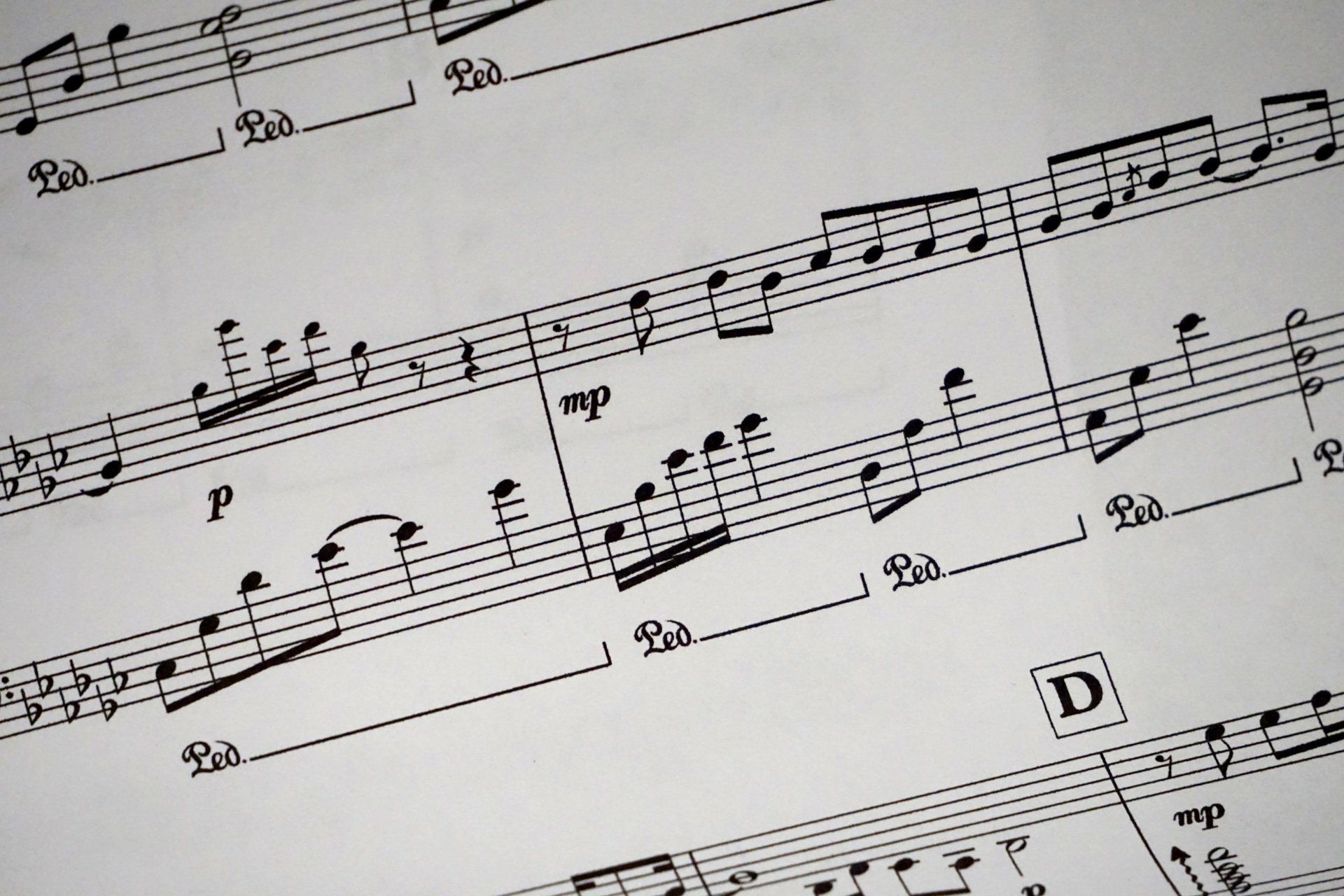The Healing Power of Music

Music is a powerful thing. We know it can evoke emotions and be a huge part of a culture. It is used in worship in many religions. Movie producers hire a composer to help tell the story or give an emotional impact. The Greek philosopher Pythagoras prescribed music as medicine.
Can it help your health?
Music and the Brain
Our brains can distinguish between music and noise. It responds to rhythm, tone, and repetition. The brain is responsible for interpreting what your ears hear. Different parts of the brain respond to components of music like pitch, melody, memory, and emotional response. When you listen to music, you use many parts of your brain. Music isn't music to us without the brain.
Music for Stroke Aftercare
According to the NIH, "Music-based interventions may be helpful in the rehabilitation of people who have had a stroke."
A 2019 review study of music used during the rehabilitation of stroke patients showed "Musical interventions could be beneficial for the functional recovery of an upper extremity."
Another review study showed music's usefulness in lowering depression post-stroke. Knowing that the brain is stimulated in many different areas while a person is listening to music, it is no surprise that music could be very beneficial for stroke victims. Patients who have had a stroke often need to "exercise the brain" to help regain the function that was lost after the stroke. What a fantastic way to exercise!
Music Therapy
Music therapy has been used in clinical settings for decades. For example, as a nurse in the ICU, I often used a music therapist to help my patients ease their pain or anxiety.
I also saw it helped many sleep deprived (a common issue in the ICU) patients fall asleep quickly.
The music therapist learns what music the patient likes, knows what their needs are, and plays music for them. Often the patient will sing along or play another instrument they know. It was a welcomed break from their illness. I often saw clinical signs of improvement, like less pain or lower blood pressure and heart rate. The patients were more relaxed, and I saw more smiles from them. Indeed, studies have recommended nurses use music to help their patients' anxiety levels.
Music to Help You Heal
We all want a strong immune system to fight against things like viruses and cancer. Music has been shown to increase gamma globulin A and boost killer T cells, parts of our complex immune system that fight against illnesses and diseases. When we are stressed, our cortisol levels increase. This lowers our immune response, increases recovery time, and puts us at risk of diseases and illnesses.
Music reduces stress (as evidenced by lower cortisol levels). So this can be another tool in our belt to boost our immune system.
Music for Anxiety and Depression
Most of us have probably struggled with anxiety, especially in recent years. Often we want a quick solution that doesn't involve medication.
Listening to music can be a great way to reduce your anxiety and help with depression. It increases your "feel-good hormone" called dopamine. In addition, it has been shown to increase serotonin (which helps with sleep and mood) and endorphins (responsible for lowering stress and pain response). This can help you feel better mentally.
Taking care of your mental health is important, and what better way than to enjoy your favorite music?
Music in Exercise and Sports
It would be difficult to imagine a high-intensity workout without music. Listening to music with the same tempo as your workout can motivate you and keep your intensity on track.
It has been shown to produce a slight increase in performance in sports and exercise. In fact, many sports and athletic competitions have rules in place about personal music devices while competing, being that it might be an unfair advantage.
Music is played in sports arenas and fields all over the world.
Regular exercise will improve your health, and music can help your exercise efforts in many ways.
Music Frequency and Cell Health
Exciting new research is being done on music's ability to alter non-auditory (hearing) cells.
In this study, dissonant music (non-rhythmic) caused cell death, and resonant music positively affected cells. This base research can open up new studies on music and frequency and its effect on health.
Frequency in music is the speed the air vibrates, which determines the pitch of a sound. The frequency of the music we listen to could help our health.
A study found that subjects who listened to the same music but at different frequencies (440Hz and 432 Hz) experienced different bodily effects. When subjects listened to music tuned to 432 Hz, their blood pressure, heart rate, and respiratory rate went down. When they listened to music tuned to 440 Hz, there was no change.
Many alternative medicine practitioners who use sound therapy on their patients are convinced that listening to specific frequencies can help heal the body.
Indeed, sound therapy has been used in healing practices for centuries. Tibetan singing bowls, drums, and tuning forks are tools of this trade, and many have benefitted from them.
More research is needed on frequency and sound healing, but it is an exciting subject that deserves more attention. You can find many videos with different musical frequencies you can try for yourself.
Summary
Music can be great for your health.
It can help with anxiety, illness and recovery, and sports performance. It may even go as deep as affecting your very cells.
Find a great music app and make playlists to help your health journey.
Explore different types of music and listen to them often. Discover your body's reactions to certain music and use it to your advantage.
Some things you must do to maintain health can be difficult or tedious, but music is a fun and easy way to help reach your health goals.
Sources:
Effects of music in exercise and sport: A meta-analytic review. (apa.org)
Thank you for reading Patient Education Essentials, the Write Shift RN blog.
Disclaimer: This article was written as a guest post for Write Shift RN LLC's blog. The information in it may not be wholly fact-checked or edited, allowing the reader to see the writer's work and skills firsthand. This information is not intended as medical advice. It is for informational and educational purposes only. Always talk to your doctor or other qualified healthcare providers about any questions or concerns you may have regarding medical conditions.











